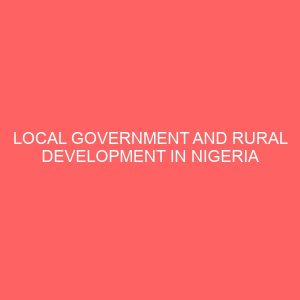Description
Abstract
This project topic is on The impact of sales promotion in the marketing of consumer product in Nigeria with reference to Unilever Nigeria Plc Lagos. This research is aimed at finding out if sales promotional activities have positive effect on the sales of the precuts of the company and to find out the roles of the company’s product. In an attempt to achieve the objectives stated above, research samples, the opinion of the respondents gotten through convenience sampling procedure. The data gotten were analyzed through simple percentage. After the analysis, the following findings were made 1) That Unilever Nigeria Plc adopt sales promotion 2) That the organizational needs the media to research customers 3) That sales promotion has a positive effect on the profit of the firm. Based on the findings above the following recommendations were made 1) That the organization should intensify units sales promotional activities. 2) That the company should not neglect any promotional tool or activity because each of them should has a part ot play in realizing the organizations objectives. 3) The company should be innovative in nature in order to meet up with the world modernizations.








Reviews
There are no reviews yet.